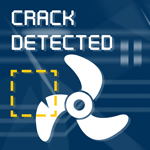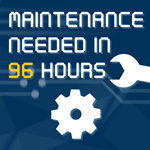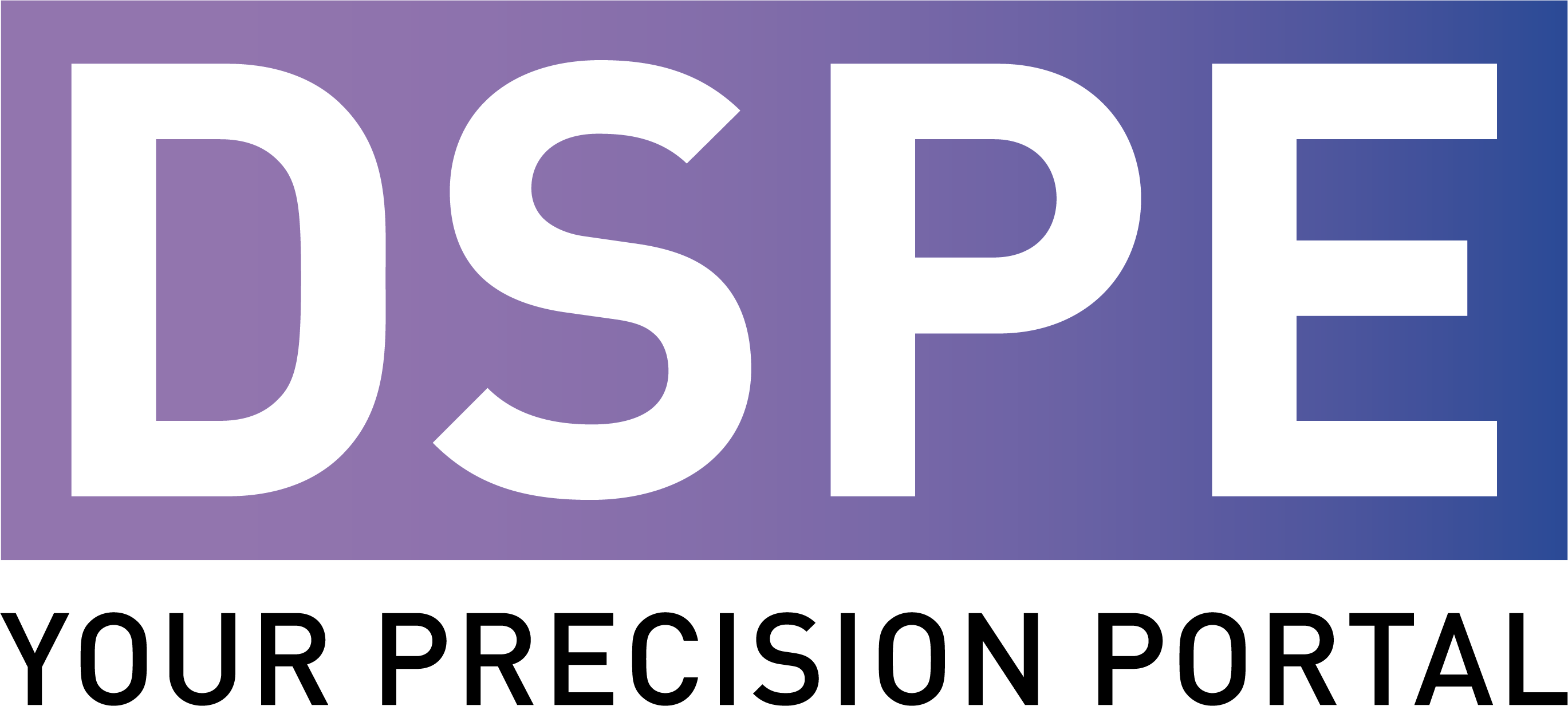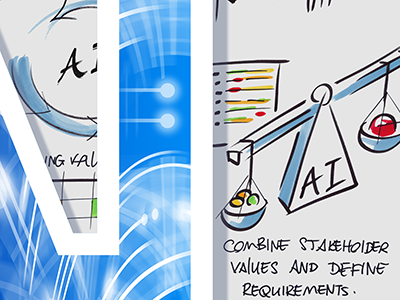Overview
Get up to speed on AI in Manufacturing and learn how to use it within your own organization. A course for manufacturing professionals who are curious about AI, and want to see the possibilities for real world implementation.
This course is designed to bring you up to speed on AI in manufacturing in a very short space of time. How is this possible? It’s because the course isn’t designed to make you an AI developer; rather it builds on the professional experience you already have. It shows you how you can apply AI to your business in ways that truly improve efficiency, effectiveness, and that help your company thrive. The course offers real, start to finish project demonstrations, shows what obstacles you might encounter along the way, and shares the tips and tricks needed to make AI work well.
This course is for active and ambitious professionals in the manufacturing industry, who have a management role or own a process. Participants can be from a wide variety of disciplines: manufacturing, operations, maintenance, business office, finance/accounting, supply chain, logistics etc.
In this course, you will gain a high-level overview of what AI is, what it can and can’t do today, in which key problem areas AI is good at providing solutions, and what the next 5-10 years might bring in additional capabilities. You will then explore several different real-world scenarios that apply AI in a manufacturing environment and discuss some of the challenges faced. We will look at expected costs for an AI project, as well as the expected benefits from cost and time savings, and revenue growth.
At the core of the course, you learn about common methods in AI in manufacturing. For each methods you will obtain a basic overview, review a case study, and reflect on how you could apply it in your own setting:
 Classification – includes classifying different items from photos, text, sounds, signals, or other inputs through various sensors (temperature, strain gauges etc.). How to deal with the vast amount of data obtained? Think about using this method for decision trees to spot, analyze and avoid future errors during the manufacturing process. Algorithm spotlight: Support Vector Machine (SVM).
Classification – includes classifying different items from photos, text, sounds, signals, or other inputs through various sensors (temperature, strain gauges etc.). How to deal with the vast amount of data obtained? Think about using this method for decision trees to spot, analyze and avoid future errors during the manufacturing process. Algorithm spotlight: Support Vector Machine (SVM).
 Prediction – use of regressions to analyze past data for applications such as predictive maintenance (to avoid failure of equipment); on-time delivery and manufacturing rate. Algorithm spotlight: linear regression and gradient descent.
Prediction – use of regressions to analyze past data for applications such as predictive maintenance (to avoid failure of equipment); on-time delivery and manufacturing rate. Algorithm spotlight: linear regression and gradient descent.
 Optimization – improving our algorithms to increase production. From all the input we have and the data we collect, which "knob" should we turn to improve our processes? How can algorithms help us here? Algorithm spotlight: Neural Network.
Optimization – improving our algorithms to increase production. From all the input we have and the data we collect, which "knob" should we turn to improve our processes? How can algorithms help us here? Algorithm spotlight: Neural Network.
In addition, you will be introduced to ethical issues that arise when applying AI, such as malicious use, transparency (can we trust a system we do not understand?) and threat to jobs.
Our goal for you is not to make you an expert in AI by the end of the course. Rather, it is to help you understand how AI could solve real problems you are facing within your organization and give you the knowledge and skills to guide your company’s technical team toward solutions that will make the most difference.
See AI in Manufacturing in Action!
In this course you will have the opportunity to see AI in action with an end to end demonstration of an AI project that could be implemented at a number of different companies. The example will involve establishing the problem (defective parts on the manufacturing line), setting up the solution (what data to collect, how to collect it, how to build the AI model), installation of the hardware and data flow, and the testing/improving actions needed to tune the model. You will not need to know how to code for this case study example, but the process will show a real-world example, the problems faced with AI in an actual use case, and how to address them.
What You'll Learn:
At the end of this course, you will be able to:
- Explain the basic elements of AI.
- Explain how AI can be used to improve business processes.
- Evaluate for your company what processes could be improved with AI-driven defect analysis.
- Discuss the ethical implications related to certain AI projects.
- Evaluate for your company what safety processes could be improved with AI-driven imagery analysis.
- Analyze creative ways to use AI in situations that are not well controlled (outside, dirty, disorganized, etc.).
- Create a roadmap for applying AI to your own organization.
This course is certified by the Dutch Society for Precision Engineering (DSPE) and counts towards earning a DSPE-issued Microcredential.

Your Learning Platform
Take a 2 minutes video tour to see how convenient and easy it is to participate in an online course of TU Delft.
Details
Course Syllabus
Week 1
- A Brief History of AI
- AI Overview: What Is It, and What Can It Do?
- Key Challenges for Implementing AI in an Organization
- What is a Cat?
- Who Are You and Why Are You Here?
Week 2
- AI Methods in Depth: Classification
- Project 1: Back Office; Predicting Customer's Likelihood of Paying
- Live Stream Q&A 1
Week 3
- AI Methods in Depth: Prediction
- Project 2: Identifying Defects
Week 4
- AI Methods in Depth: Optimization
- Project 3: Hardhat Detector
- Live Stream Q&A 2
Week 5
- Great Power, Great Responsibility: The Ethics of AI
- Project 4: Planning a Solution to a Messy Problem
Week 6
- Your Turn: How to Bring AI to Your Organization
- Live Stream Q&A 3
- Major AI Fails, and What We Can Learn from Them
- Daily AI Applications
- Next Steps: What will you do with this knowledge?
Assignments
At the beginning of the course, you will choose a study case and work on it as weeks go by, applying the concepts/tools that you are presented with each learning unit. By compiling the weekly assignment and working on the narrative, you will be able to finish the final assignment.
There are overall 6 assignments (which are reflections or essays on the topics covered), along with a number of discussions and quizzes. The quizzes/discussions are formative (for your own practice, no grade) but the assignments are summative and count towards your final score. To pass the course you will need to achieve at least 75% in total. We will ask you to share each assignment in Sketchdrive and comment on your peers' work. If you submit on time as scheduled, your work will likely feature in the feedback video that will be recorded each week.
Qualifications
Certificates and CEUs
Professional education course with verified certificate.
The TU Delft Extension School offers Continuing Education Units for this course. If you successfully complete the course requirements you will earn a Certificate of Completion and are eligible to receive 3.0 Continuing Education Units (CEUs).
Chartered Engineering Competences
All our online courses and programs have been matched to the competences determined by KIVI’s Competence Structure, a common frame of reference for everyone, across all disciplines, levels and roles.
These competences apply to this course:
- A1: Extend your theoretical knowledge of new and advancing technologies.
Admission
Prerequisites:
No specific technical prerequisites. Experience in manufacturing is highly recommended. Participants will benefit most from the course if they are a process owner within their organization or are in a management position overseeing various processes.
Contact
If you have any questions about this course or the TU Delft online learning environment, please visit our Help & Support page.





